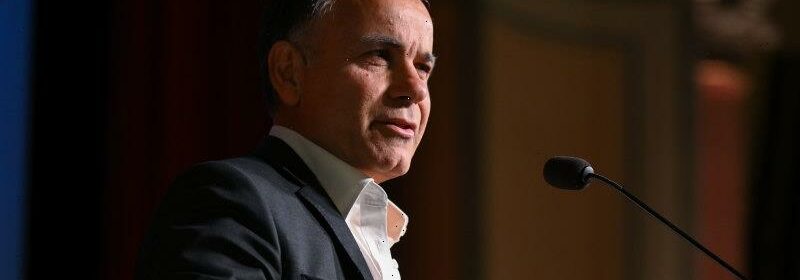Home ownership and the Liberal Party’s fortunes inextricably linked

It’s a predicament that no political party wants to confront: a demographic dead end. At November’s state election, the Liberal Party won less than 30 per cent of the primary vote. The Nationals picked up 4.8 per cent. The Coalition’s quandary is that its support is skewed in a very particular way.
As reported this week, demographic analysis by polling firm RedBridge shows Baby Boomers, who were born between 1946 and 1964, and the silent generation born between 1928 and 1945 make up three-quarters of the Coalition voter base. By the next election, in four years, an additional 60,000 to 70,000 of this base will have died in Victoria, and the two parties’ combined vote is expected to drop below 30 per cent.
John Pesutto has vowed to attract younger voters to the Liberal Party. Credit:Eddie Jim
So it was a statement of the bleeding obvious when state Opposition Leader John Pesutto told The Age the Liberal Party had to work harder to appeal to younger voters. In pursuit of that goal, Pesutto hopes to convince younger voters that home ownership is an attainable goal with the right policy settings.
It’s a commendable but challenging ambition with some obvious political overtones. First, the challenges. State and federal governments across Australia have tried to tackle housing affordability for years, largely through financial incentives for first-home buyers and boosting housing supply using planning regulations. During most of that time, the price of a home has gone up, and quickly, partly because all those incentives have simply boosted prices. It is only since the Reserve Bank has been forced to increase interest rates to tackle inflation that the market has undergone something of a correction, and prices have come down.
Hugely expensive housing is bad economics and bad social policy, as the International Monetary Fund pointed out this week, but reducing the price to ensure young people can get a foothold is seen as bad politics because those already on the property ladder fear their on-paper wealth diminishing. Since Robert Menzies’ time, the Liberals and home ownership have been inextricably linked. Former federal Liberal MP Tim Wilson has written in his book The New Social Contract of the powerful correlation between property ownership and voting conservative. In this context, Pesutto’s call to young voters that they should not lose hope could very well be his message to his MPs about the party’s future.
Beyond housing, Pesutto sees climate change (specifically rebuilding the electricity grid) and women’s representation in the Liberal Party as critical to broadening its appeal. While these are commendable goals and should be fleshed out as policy, it is political space that Labor dominates, and in which the Liberals have sent terrible signals in recent years.
Meanwhile, there are fresh ideas emerging from Pesutto’s ranks. Newly elected Liberals Chris Crewther and Evan Mulholland used their first speeches last week to put forward a policy shift to try to keep people out of prison and give them a “second chance” at life. If officially adopted by the party, this would be a significant and commendable change from the tired tough-on-crime rhetoric we’re more used to. It could also put Labor on the back foot, after the Andrews government capitulated to populism and has presided over ballooning prisoner numbers and the largest police force in Australia, at an annual cost of $4 billion.
The electors of Victoria have made it clear they are not buying what the Liberal Party has been selling. Pesutto has an enormous job to rebuild his party’s brand. His first steps have been cautious, but The Age would encourage him to seek new ideas and ensure that in areas where Labor is vulnerable, he offers a credible, attractive alternative.
Michael Bachelard sends a newsletter to subscribers each week. Sign up to receive his Note from the Editor.
Most Viewed in National
Source: Read Full Article
